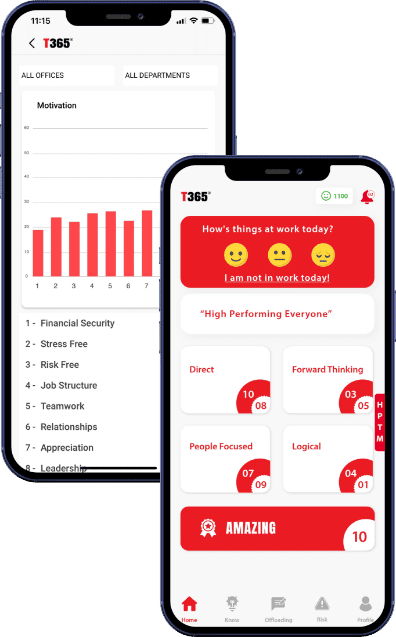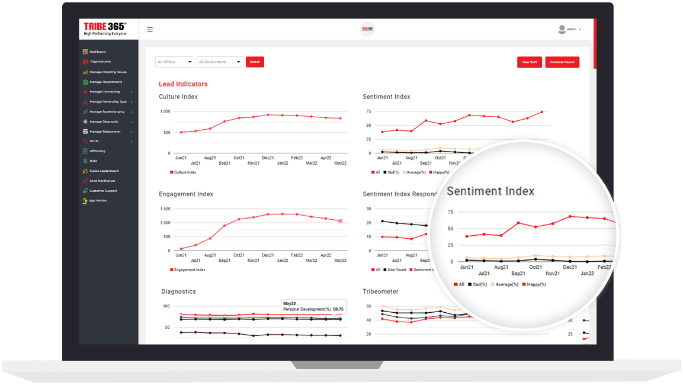Why Is It Important To Give Employees Transparency?
When you were growing up, did it ever frustrate you that adults would tell you to do something without explaining why?
‘Just do it’ might well be the most powerful brand slogan in the world, but that phrase takes on a whole different meaning when it’s used as a diktat in human relationships.
In our experience – as parents and organisational experts (and former children ourselves!) – we see that people of all ages and types respond a lot better when they understand the reason why they are being asked to do something.
And when they have a better grasp of the ‘why’ and ‘how’ to go about tackling their task, the much better they will perform it.
So, why do so many organisations – especially at directorship and leadership level – fail to grasp how important it is to give employees transparency in the workplace?
Curiosity Killed The Cat
Humans are, by nature, curious beasts. And it’s perhaps something of a curse (or blessing, depending how you choose to look at it) that we get deeply frustrated when our curiosity isn’t satisfied.
Take your classic ghost story, for instance.
Yes, they build curiosity and tension but their enduring popularity since the time of the Babylonians comes down to the fact that – crucially – they almost always offer some kind of a resolution or unveiling. Why is there a ghost? And what can be done to appease it or make it disappear altogether?
Would Scooby Doo have become such a classic if it weren’t for the “And I would have gotten away with it too, if it weren’t for you meddling kids” resolution that comes at the end of every episode? We needed to know the mystery behind the haunting every time, didn’t we?
Why is this important in the context of the workplace? (no, we’re not suggesting you fabricate a vengeful productivity obsessed ghost to frighten employees into working harder!)
It’s important because one trait we see in nearly every poorly performing organisation we come across is the lack of trust that builds up between employees and management because the latter appear to be keeping ‘the whole story from them’.
Why Is Lack Of Trust A Dangerous Thing In The Workplace?

Trust is the basis upon which all professional and personal relationships are built.
It takes time to build. And, if it’s ever broken, the damage can be irreparable.
Employees feel insecure when they lose faith and trust in leadership. They feel that they don’t work in a safe environment. They don’t feel valued or listened to. And, the more insecure they become, the more likely their performance is to drop off.
They’ll also start to become increasingly distracted that their job – and livelihood – is at risk, and focus their energies on self preservation and job hunting.
The result of that is that organisations lose good employees – and the rot starts to set in across teams as a whole. Soon, an organisation can find itself facing a raft of resignations and a huge increase in recruitment costs (which some experts estimate equate to between 150% and 200% of an average employee’s salary – more, if you’re talking specialist roles).
Equally, when a lack of trust and poor performance are rife in an organisation, businesses are likely to deliver poor customer service which translates to declining repeat business and brand loyalty – which, ultimately, results in declining profits.
Now, maybe we have already touched on enough to help you want to focus on getting things right with trust, but just in case let’s go one step further – “Employee Wellbeing”. Trust is essential in anyone feeling in a great space, right? Just think of your own personal relations and the moment that slight twinge of things not feeling right with someone, why have they asked you that? Really, if they wanted to do that, they would! Etc. etc. now think of how that affects you, do you feel happier for the interaction? Do you feel a little more sad for the interaction? This is on a small scale, everyday at work we have so much more exposure to these moments and what’s more there is no escaping them, we are stuck with everyone and everything we have started to trust less, it makes us less happy than if we trust everything 100%, right? So if anything trust needs to be something we are working on all the time, but how? Potentially working more on transparency…
What Does Transparency Look Like?

Workplace transparency manifests itself in the natural sharing of information in an effort to benefit the organisation and its people.
That could mean the leadership sharing strategy and roadmaps to success with employees at all levels, or people in teams sharing feedback with one another to optimise performance.
Transparency at work often translates into highly productive and effective organisations. By encouraging transparency in the workplace, you will be eliminating confusion and forging trust between managers and employees.
The result will be a healthy, happy and high performing work environment that people love to be a part of.
How Do You Promote Transparency In The Workplace?

Look at ‘the big picture’ Think how well your organisational will perform if you have teams of people willing to give their all to it
Make transparency part of your culture Continually show people the benefits of transparency, and give them the means to be transparent
Resist the temptation to hide things from employees It’s a slippery slope to a toxic wasteland of mistrust, poor performance and high staff turnover
Commit to ‘ask me anything’ sessions CEOs who have committed to these sessions (where employees submit their questions anonymously, and the CEO or similar respond to as many as they can) can’t speak highly enough of them, because they create trust, openness and loyalty that translates into success across an organisation at every level
Make information easily accessible Don’t just deliver the next year’s strategy at an annual CEO session – make that strategy, its goals and the roadmap to achievement available to everyone at any time
Learn to explain It’s natural that people are going to want to understand why organisations have chosen to pursue a certain strategy, so be prepared to explain why in a clear and compelling way
Do people agree? Gosh, this is so critical. If your people don’t agree with your direction, then they won’t get behind it. Learn to bring them onboard by asking what they think and invite them to contribute their thoughts
Transparency Is Key To Your Organisation’s Success

A lack of transparency leads to reduced communication, which in turn manifests itself in low morale, passion, and a dearth of innovation.
And, without these, your organisation loses the ability to move forward or quickly respond to changing conditions.
Optimum performance can only be achieved when employees find that they can promptly and transparently communicate their concerns to leadership – and share their feedback and ideas with them.
When transparency becomes central to your corporate culture, employees will be more engaged and committed to the company’s vision.
Why?
Because they fully understand the mission, and feel empowered to work with a collective energy and passion that breeds the creativity and innovation organisations need in order to evolve and succeed in an increasingly competitive landscape.
The Tribe365 app is designed to create exactly that kind of transparency and success.

Interested in finding out more?
Book a meeting in with the Tribe team
today on +44 (0) 1325734847 or at
team@tribe365.co

















